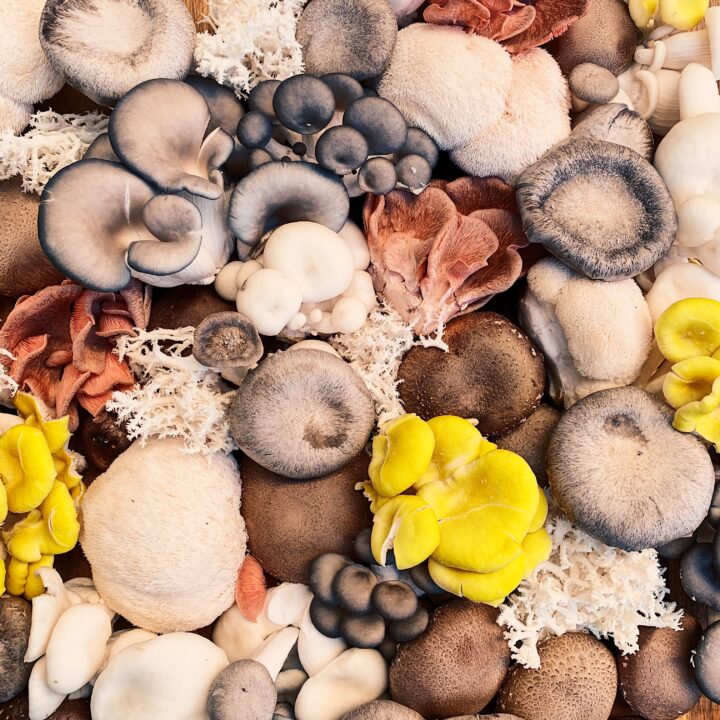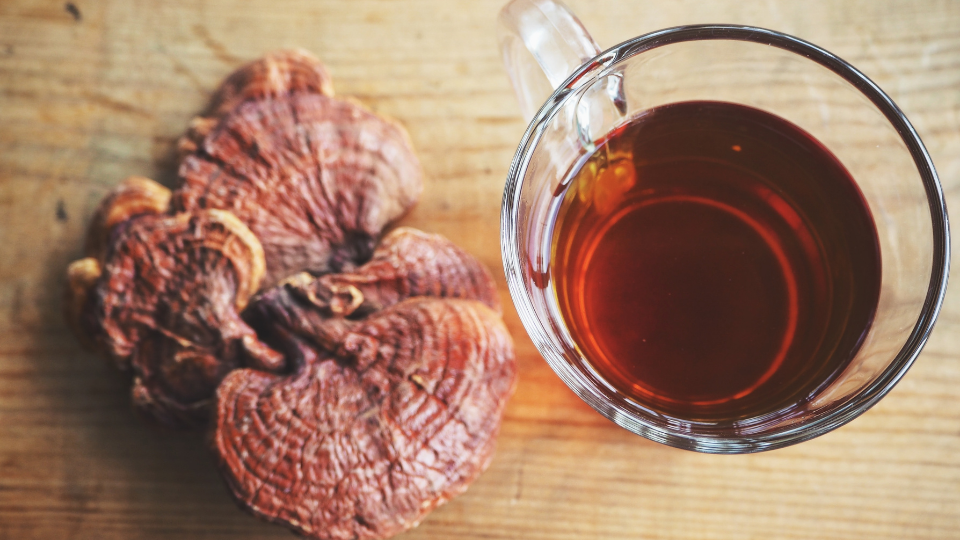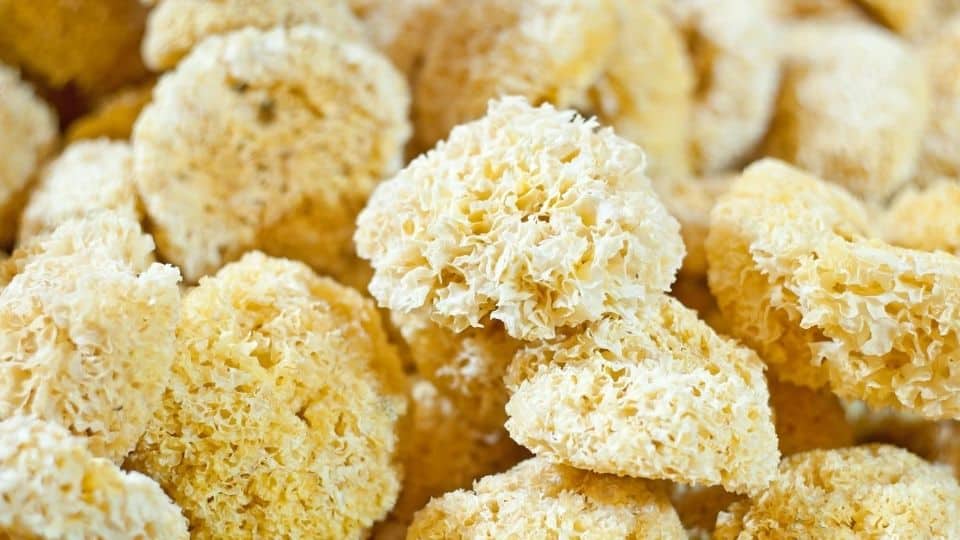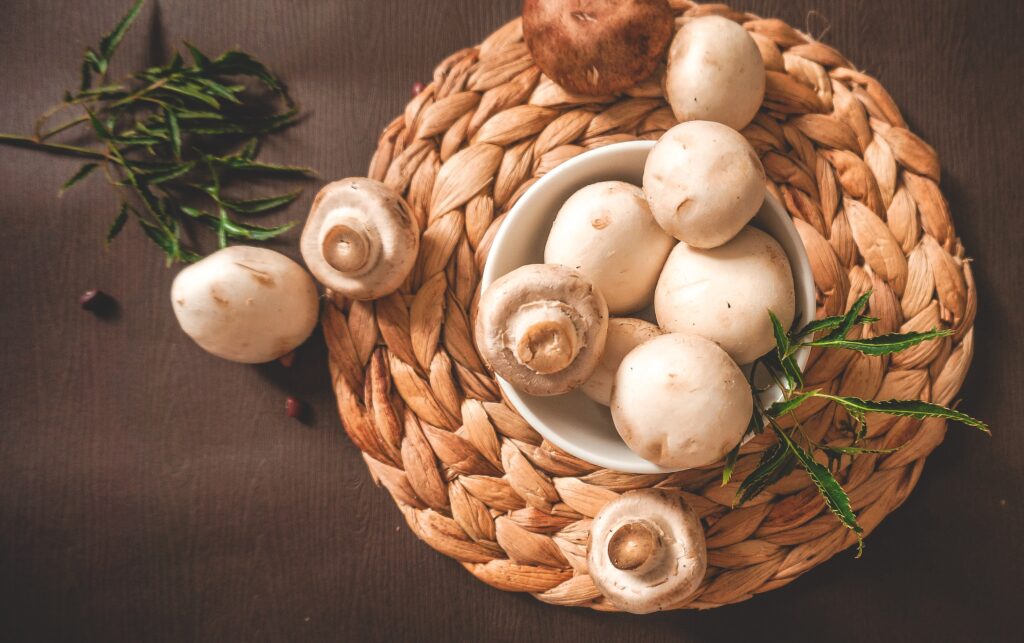Boost Your Energy Naturally with Mushrooms

When you’re low on energy, you know it.
It’s hard to concentrate.
Your productivity suffers.
The day seems to drag on forever.
You could pour yourself another cup of coffee and ride the caffeine buzz for a while, but you know you’ll only feel more drained when it wears off.
Mushrooms for energy may be the solution to stamina without stimulants. Unlike coffee, energy drinks, and caffeinated snacks, functional mushrooms work with your body to enhance energy and support stamina without sending you on a roller coaster of spikes and crashes.
The Problem With Stimulants (Even Natural Ones)
Caffeine and other natural stimulants can be useful when you need a quick energy boost. In the short term, these substances do improve alertness, focus, and mental performance.[1] Some may also have adaptogenic properties that provide additional support when you’re under stress.
These benefits don’t come without risks. Consuming too much caffeine from coffee or other natural sources can cause shakiness, dizziness, anxiety, irritability, digestive issues, headaches, high heart rate, and sleeplessness.[2]
Despite these negative effects, it can be hard to stop relying on natural stimulants for energy once you start. If you’ve ever tried to quit caffeine cold turkey, you know the withdrawal symptoms can be just as unpleasant!
Energy Mushrooms to Boost Your Stamina
Research on medicinal mushroom supplements suggests that some varieties could enable your body to produce more energy or manage energy levels more efficiently—without nasty side effects or the risk of dependency. Although most studies test how mushrooms may work to prevent or reduce fatigue during exercise, the results provide insight into potential benefits for everyday energy levels.
Cordyceps May Support Exercise Endurance*

Cordyceps mushroom (Cordyceps militaris) is the classic energy booster among fungi, particularly if you’re athletic or have an active lifestyle. Both animal and human studies suggest that cordyceps can:*
- Boost muscle glycogen to provide extra fuel
- Increase oxygen capacity for prolonged endurance
- Enhance production of ATP, the body’s “energy currency”
- Prevent fatigue during long workouts
Give this mushroom supplement a try if you’re looking for a performance boost or need extra stamina for intense training. Studies suggest that cordyceps doses from 1 gram to 6 grams per day may be beneficial.
Reishi May Reduce Inflammation*

Inflammation can make your cells less able to turn glucose from the food your eat into energy. Glucose fuels the Kreb’s cycle, your body’s energy production process, which takes place inside of cells. Insulin moves glucose out of your bloodstream and into cells, but when you suffer from inflammation, your cells become less sensitive to insulin.[3] That reduces the amount of glucose available for the Kreb’s cycle.
Your body can break down protein and fat to make energy, too, but it’s a much slower process than using glucose. Since the immune cells that create inflammation need a lot of energy, inflammation appears to prompt them to switch to a faster, but less efficient, path for energy production, resulting in lower energy levels overall. Chronic inflammation may also alter some processes in your brain and create a higher cognitive load, which can make you fatigue more quickly when doing mental work.[4]
Reishi mushroom (Ganoderma lucidum) contains anti-inflammatory polysaccharides and terpenes that could help you reclaim energy lost to inflammation. Extracts from reishi have been shown to increase antioxidant enzyme activity, balance the immune system’s inflammatory response, and prevent inflammation-induced cell damage.
Lion’s Mane Can Increase Muscle Fuel*

High doses of lion’s mane mushroom (Hericium erinaceus) extracts may prevent fatigue during physical activity—at least in mice.
In one interesting study, researchers treated mice with polysaccharides from lion’s mane and examined their performance on physical tests.[5] The mice that received the highest doses appeared to benefit from:
- Reduced markers of fatigue after exercise
- Higher muscle glycogen content
- Increased liver glycogen
These results suggest that, as a mushroom for energy, lion’s mane might improve metabolic control during exercise. In practical terms, that means it could help you stay active for longer periods of time without getting tired. But because the study subjects were mice, more research is needed to discover if humans can get the same health benefits.
Tremella May Regulate Energy Production*

Tremella (Tremella fuciformis), the wobbly, jelly-like mushroom that’s having its moment in skincare, may also be a beneficial mushroom for energy.
One interesting(synonym) study from 2019 showed that tremella extracts could:[6]
- Increase ATP production
- Increase liver and muscle glycogen levels
- Prevent pro-inflammatory free radical buildup
- Increase levels of antioxidants like superoxide dismutase (SOD) and glutathione peroxidase (GSH-Px)
Researchers concluded that consistent treatment with a tremella mushroom supplement may support longer activity times without fatigue.
As with the study on lion’s mane, this experiment tested very high doses of tremella mushroom in mice. The amounts used aren’t practical for testing in humans, but the results provide a compelling reason to explore whether a typical medicinal dose may produce the same results.
Button Mushrooms May Increase Stamina*

The little white and brown mushrooms you enjoy (or avoid!) on pizza might have energy-boosting properties of their own. One study from China showed that water extracts from button mushrooms (Agaricus bisporus) could reduce markers of exercise fatigue and increase physical activity time in mice.[7]
In another study, rats treated with button mushroom extract had more glycogen in their livers and muscles, less lactic acid buildup, and lower blood levels of an oxidative stress marker called malondialdehyde (MDA) after exercise than a control group.[8] This suggests that their bodies used glycogen more efficiently and their muscles suffered less damage, which could be beneficial for both activity time and recovery.*
Lower MDA levels also point to the potential antioxidant properties of button mushrooms.[9] Alcohol and water extracts from the stem, gills, and cap may reduce inflammation and shift your body back toward more efficient energy production.*
Research on these benefits is still in the preliminary stages, but it’s worth keeping an eye on to see what other powers the simple button mushroom may be hiding!
Black Hoof Mushrooms
Phellinus linteus, the black hoof mushroom, is a decidedly unfamiliar mushroom—at least in the Western world. But this wild mushroom is well-known in traditional Asian medicine and has been used for centuries to treat bleeding problems and digestive upset and promote balance within the body.[10]
The black hoof mushroom may increase stamina during physical activity by enhancing the flow of lactic acid.*[11] Extracts from the mushroom appear to boost the production of proteins that move lactic acid into cells, where it can be used to fuel intense activity.*[12]
Black hoof may also help maintain balance between serotonin and dopamine in the brain during periods of exertion.* Exercise increases serotonin levels, but too much can lead to fatigue and decreased performance.[13] Numerous anti-inflammatory antioxidants in black hoof mushrooms may provide additional support for mental and physical energy.*[14,15]

